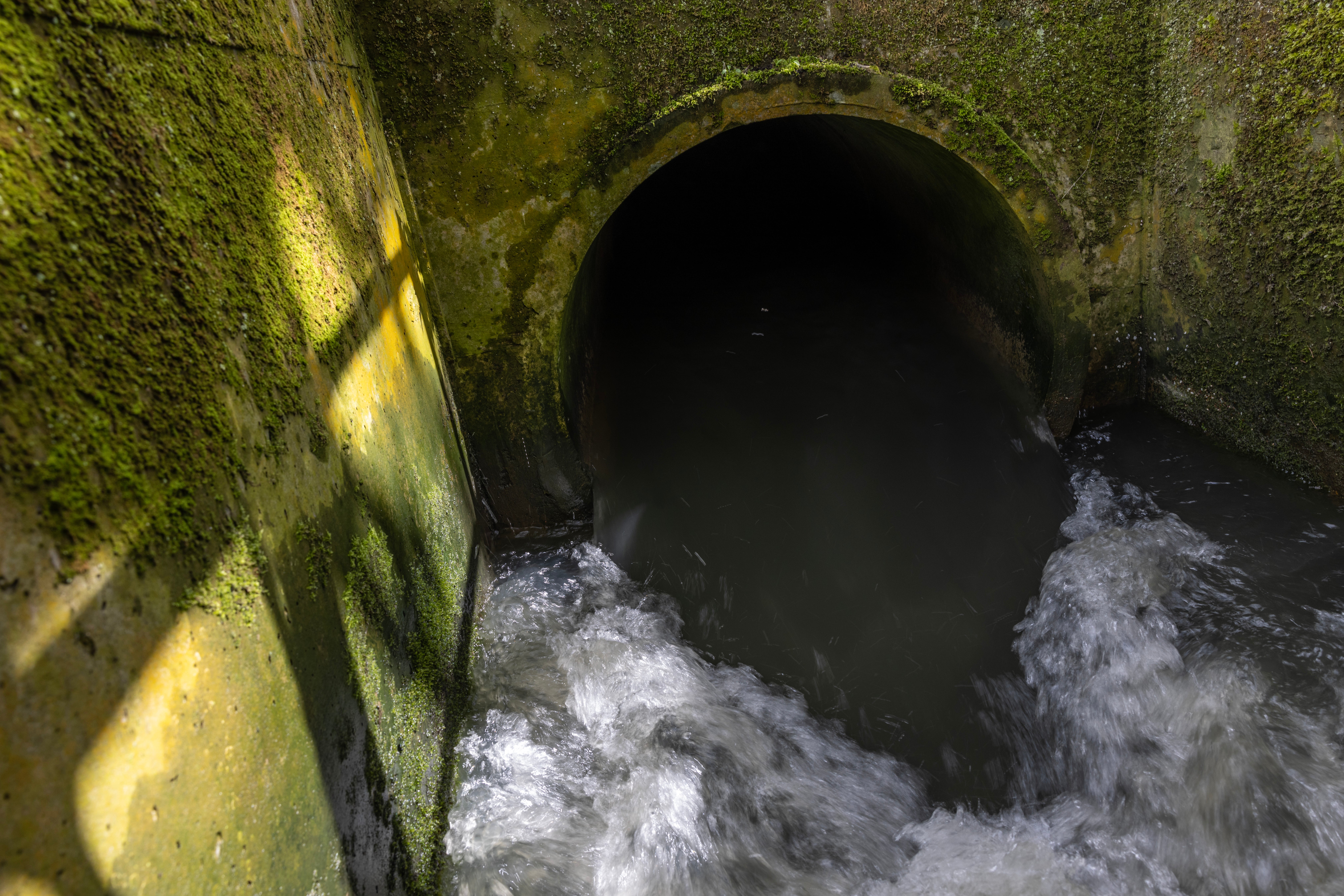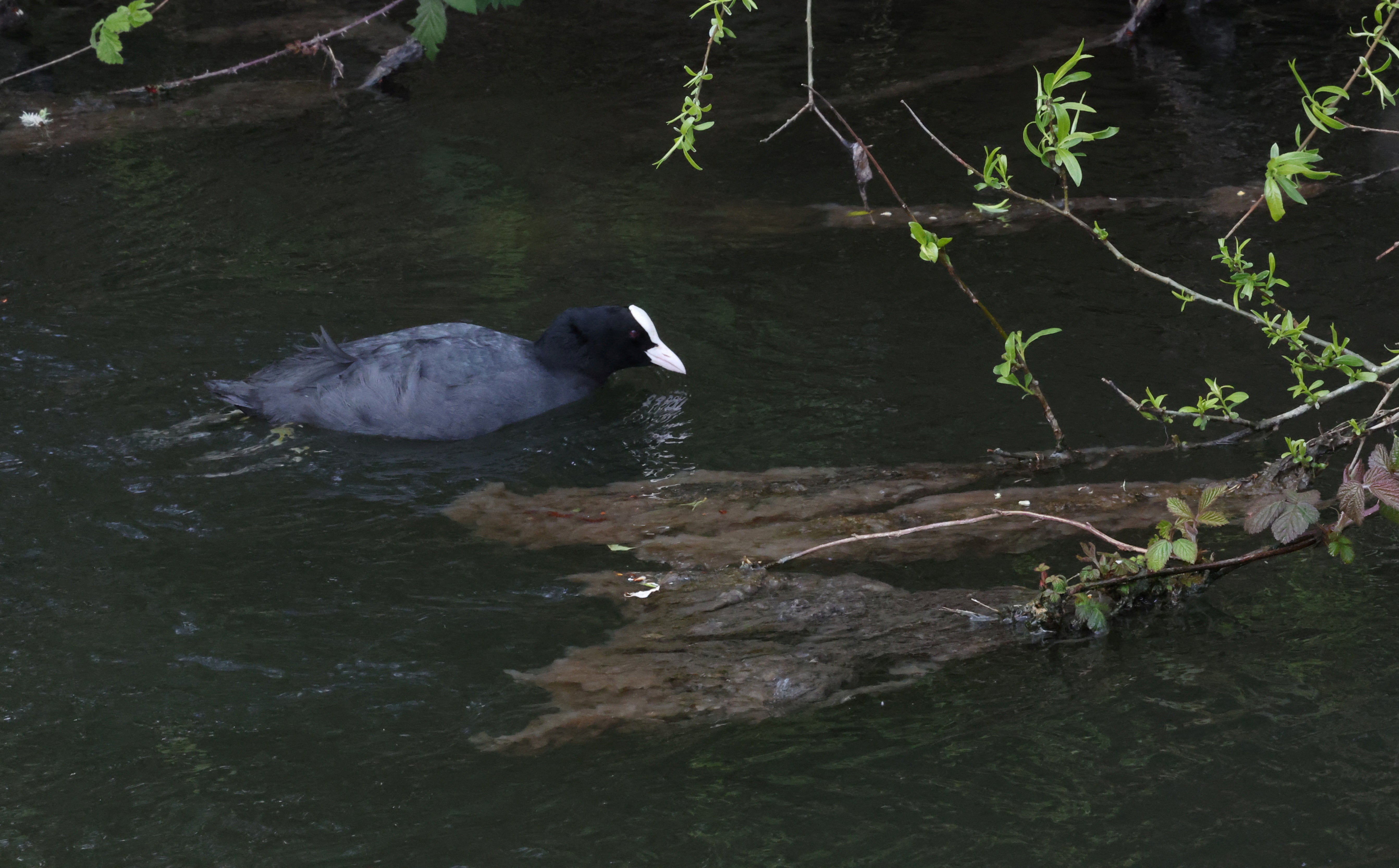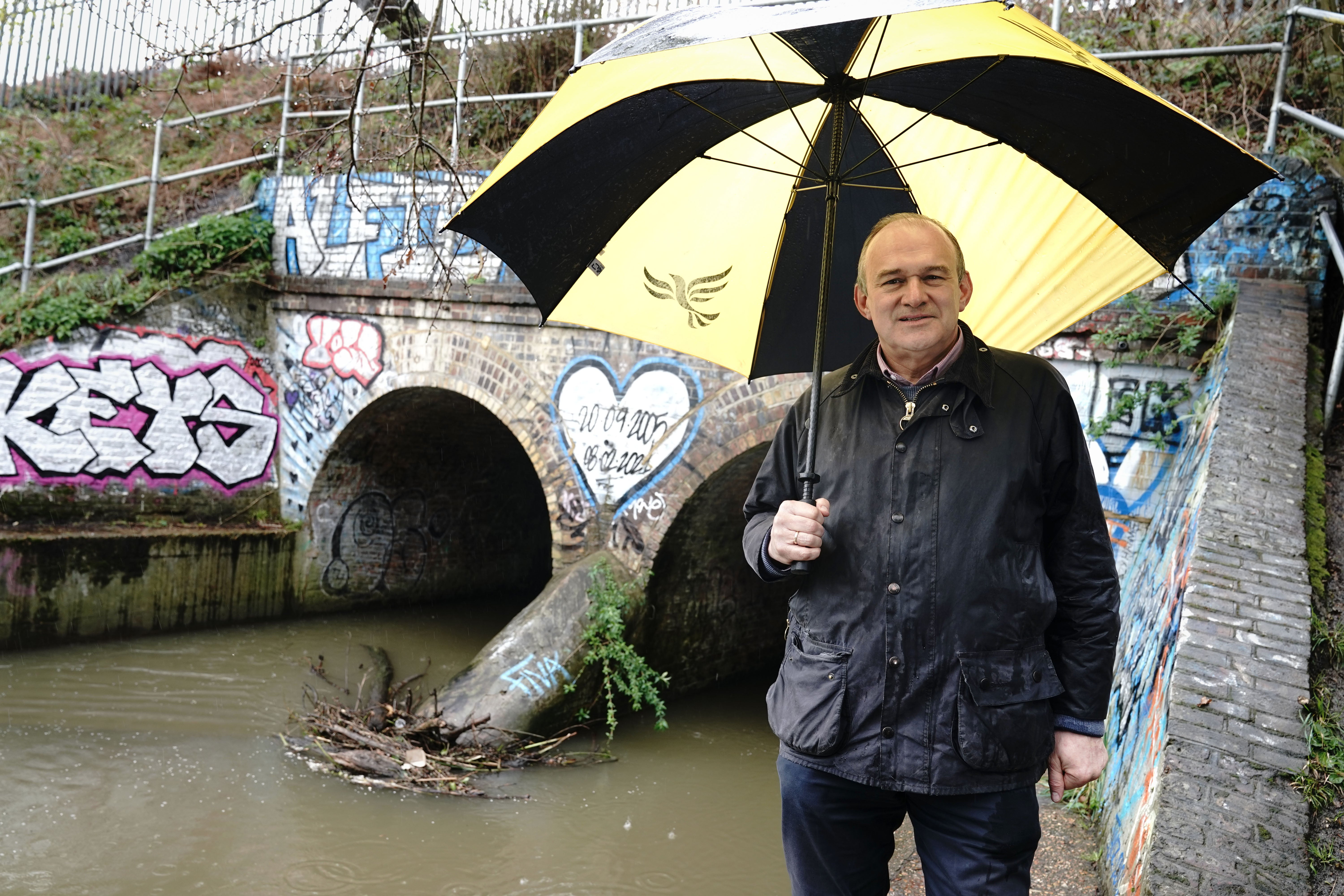Government breached law by allowing water firms to discharge sewage, watchdog finds
The regulator has sent a notice to each of the authorities setting out steps it wants to see taken to put the situation right
Your support helps us to tell the story
From reproductive rights to climate change to Big Tech, The Independent is on the ground when the story is developing. Whether it's investigating the financials of Elon Musk's pro-Trump PAC or producing our latest documentary, 'The A Word', which shines a light on the American women fighting for reproductive rights, we know how important it is to parse out the facts from the messaging.
At such a critical moment in US history, we need reporters on the ground. Your donation allows us to keep sending journalists to speak to both sides of the story.
The Independent is trusted by Americans across the entire political spectrum. And unlike many other quality news outlets, we choose not to lock Americans out of our reporting and analysis with paywalls. We believe quality journalism should be available to everyone, paid for by those who can afford it.
Your support makes all the difference.The government and regulators breached the law by allowing water firms to discharge sewage, a watchdog has ruled.
The Office for Environmental Protection said the Environment Department (Defra), the Environment Agency (EA) and Ofwat failed to comply with environmental law over regulating discharges from combined sewer overflows (CSO) into England’s rivers and seas.
These outlets from the sewerage and drainage network are only supposed to be used in exceptional circumstances such as periods of unusually heavy rain to prevent the system backing up and flooding people’s homes and businesses with sewage.
But an investigation by the Office for Environmental Protection (OEP) found that Defra and the regulators failed to provide guidance, permits and enforcement for the use of CSOs in line with the law.
The announcement comes amid widespread public anger over the degraded state of England’s rivers, lakes and coastal waters, which are beset with pollution from several sources including sewage, agricultural run-off and chemical pollutants.
Campaigners who lodged the original complaint with the watchdog said the ruling showed much of the pollution “plaguing English rivers” would not be occurring if the government and regulators had done their job.
Summary
Powered by Bulletin
- The Office for Environmental Protection (OEP) ruled that the UK government and regulatory bodies acted unlawfully by allowing water companies to discharge raw sewage into rivers and seas outside of “exceptional circumstances.”
- The OEP investigation found that the Department for Environment, Food & Rural Affairs (Defra), the Environment Agency (EA), and Ofwat failed to provide adequate guidance, permits, and enforcement regarding the use of combined sewer overflows (CSOs).
- CSOs are designed for use during extreme weather events to prevent sewage backups, but the OEP concluded they are being used more frequently than legally allowed.
- The ruling follows a complaint by environmental campaigners who argue this pollution is a direct result of regulatory failures.
- The OEP issued notices to Defra, the EA, and Ofwat, outlining necessary corrective actions, with the possibility of legal action if these are not implemented within two months. The agencies claim to be addressing the issues.
Conservation charity WildFish said the public bodies had allowed water companies to pollute English rivers unlawfully for years and called for storm sewage pollution to be brought to an end.
Discharged sewage can harm wildlife and wider river ecosystems because chemicals entering the water – from pharmaceuticals to phosphates – are toxic or fuel the rapid growth of algae, which can choke out other forms of life by consuming all the oxygen.
It can also be a source of E coli, which can cause diarrhoea, stomach cramps and fever when ingested by swimmers.
The regulator has sent a notice to each of the public authorities setting out the steps it wants to see taken to put the situation right – and a failure to do so could see it take the government and regulators to court.
Helen Venn, the OEP’s chief regulatory officer, said: “The core issue identified in our investigation is the circumstances in which the regulatory system allows untreated sewage discharges to take place.

“We interpret the law to mean that they should generally be permitted only in exceptional circumstances, such as during unusually heavy rainfall.
“This is unless an assessment of the CSO concludes that the costs to address the issue would be disproportionate to the benefits gained.
“While the public authorities are now taking steps to ensure their approaches are aligned and reflective of the law, we have found that this has not always been the case.”
She said there had been positive steps to address the issue, including Defra’s consultation on updated guidance, the EA’s consultation on storm overflows including permit conditions for spills from CSOs and draft orders and investigations into water companies by Ofwat.
Defra, Ofwat and the Environment Agency have two months to respond to the watchdog to confirm whether they were going to take the steps it considers are needed to put matters right.
Ms Venn said: “We will decide next steps when we have considered the responses to these decision notices. That could include court action.”

Guy Linley-Adams, in-house solicitor for WildFish, said: “Storm sewage pollution should have been – and must now be – brought to an end under 30-year-old statutory and regulatory obligations.”
WildFish chief executive Nick Measham added that the organisation would be watching the Government and regulators extremely closely to see how they brought the “current illegality to a rapid end”.
The investigation by the OEP did not include overflows at sewage treatment works, where the Environment Agency is currently investigating water companies for potential failures to have sufficient storage or treatment capabilities as required by their environmental permits.
Responding to the investigation findings, an Environment Agency spokesperson said: “We recognise regulation of the water industry needs to improve, which is why we are transforming our approach with more people, powers and data alongside better training for our staff.
“We’ve also made significant progress in addressing the issues identified by the OEP and are consulting on updates to our permitting approach and regulatory framework for storm overflows.”

A spokesperson for Ofwat said: “We are actively taking steps to remedy the issues the OEP has identified.
“We will continue to prioritise our enforcement investigation into all wastewater companies which started in 2021 to ensure that companies are meeting their environmental obligations.”
And Ofwat said it would be announcing its final decision on spending by water companies over the next five years on Thursday, including a significant increase in environmental performance targets for the utilities.
A Labour spokesperson said the findings laid bare the “Conservative’s utter failure to regulate the water industry” and “the result of their catastrophic policies has left record levels of sewage pollution in Britain’s rivers, lakes and seas”.
The spokesperson said the Labour Government had acted “decisively” to place water companies under special measures, with new powers to ban bonuses and bring criminal charges against polluting water bosses.
The Information Commissioner’s Office (ICO), which is in charge of the Freedom of Information and Environmental Information Regulations system, has called on water companies to proactively publish the start and stop times of sewage discharges.
The ICO says that so far only two water companies, Yorkshire Water and South West Water, have committed to publishing such information each month.

Join our commenting forum
Join thought-provoking conversations, follow other Independent readers and see their replies
Comments